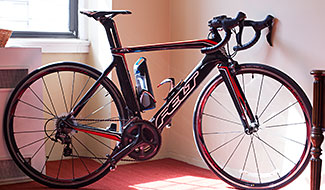The web pioneer who is teaching 25m people how to program

Simply sign up to the Life & Arts myFT Digest -- delivered directly to your inbox.
Zach Sims lives between Midtown and the Upper East Side in an area with a quiet vestige of old New York charm where local independent shops, tailors and cobblers look much as they did half a century ago.
The 24-year-old co-founder of Codecademy, a free online tutorial that is teaching millions how to code, says he is probably the youngest person in the area by 20 years or so. Not that it bothers him: before he moved into this 1950s one-bedroom flat about three years ago, he had been sleeping in his start-up’s office along with his co-founder Ryan Bubinski, 25.
“Anything looks great after sleeping in an office,” he says from a worn brown leather sofa in his living room. The coffee table, made from reclaimed wood, also strikes a balance between mid-century classic and repurposed chic; a desk he purchased from his Columbia University fraternity strikes a statelier note.
The dozen notebooks on the bookshelf are used by the tech entrepreneur to record his day-to-day experiences, including the first days of Codecademy, in 2011, when Sims and Bubinski were based at Y Combinator, a Silicon Valley seed incubator that has funded more than 500 start-ups, including Reddit and Airbnb.

“I thought that we could build everything in three weeks after we launched the company. I look back and most of the stuff that we’re building now is from those notes from three years ago. It takes a lot longer to do things than I anticipated.”
Sims compares his experience at the respected incubator to the television sitcom Silicon Valley, where smart social misfits hole up in a sparse room with an endless bowl of ramen and sift through hare-brained ideas in search of the next Facebook. “We had a bunch of other ideas if Codecademy didn’t work. I went back over them and found some of the worst . . . At some point, we had the idea to build a website creator for small businesses, which is not the worst idea, but not something we were fit to do.”
Favourite thing

Sims opts for his new carbon-fibre Felt racing bicycle. “This was a recent acquisition. I used to run half-marathons, but then I injured myself. I thought, ‘I have to be competitive in something,’ so I bought a bike . . . The goal is to end up doing a triathlon, so at some point I’ll figure out the swimming aspect.
“Normally when I do something, I end up getting pretty competitive about it. I usually wake up at 6am and bike through Central Park, but recently I’ve been going over the George Washington Bridge and through New Jersey. Two weeks ago, I did it with a bunch of people and left at 5am and it doesn’t get light until 7am. So you’re biking in the pitch black for two hours.”
The first of his significant ideas was recognising the mass appeal potential of coding. Until then, coding had been thought of as a niche tool useful only for programmers, a group that numbered only 200,000. Today, Codecademy has 25m users, which has helped it raise more than $12.5m from investors, including Sir Richard Branson.
“I noticed as a poli-sci major that there were lots of people graduating with liberal arts degrees who were struggling to find practical applications for their skills. At the same time, I was teaching myself how to program in order to work on all the ideas that we were building.” Sims took a course on programming at the Ivy League institution in 2011, his junior year, watched videos and read books, but what was missing was the immersive aspect.
He started his first business when he was just 13. The budding entrepreneur received an iPod for his birthday but couldn’t find a waterproof case for it. From the basement of his family home in Connecticut, he designed his own. “I made a drawing and then figured out how to design it using CAT [computer-assisted translation] software. Then I emailed a bunch of people in China. That was really cool. I realised that no one knows you’re 13 on the internet.” His parents, who worked in real estate and retail, were unaware of their son’s company. “I had shown them a business plan months before. I thought it was the next logical step.”

In addition to being an avid learner, Sims is a keen reader. “I think the sad thing is my Kindle has replaced most of the books that would be on a bookshelf,” he says as we stand near a wall unit with a few neatly stacked piles of books. “I always imagine when I’m older I’m going to have a huge bookshelf but now I just have this.”
Codecademy, as Sims demonstrates on his laptop, is structured around experiential learning and emphasises the effect of each line of code as the user writes it. With a few simple commands the screen begins to come alive as these commands change the colour of the background, placement of the text, and the overall structure of the page. Seeing these changes in real time demystifies them while connecting the user to the work they are producing.

Like any other language, code is best absorbed through immersion. “You see what is HTML and how the page jumps alive when you add CSS.” Classes are also offered for Python, which is used on sites like Dropbox and YouTube; JavaScript, the universal language of the web; jQuery, used to create animations; PHP, which powers Facebook; and Ruby, which Sims and Bubinski used to create Codecademy.
This year learning code became mandatory for all primary and secondary students in the UK as part of a transformation of the information and communications technology curriculum. Sims, who opened Codecademy’s London office in May, is thrilled by the speed of this progress. “[It is] something that never would happen in the US,” he says, “because there’s no centrally focused education system here.”

Sims speaks softly but quickly, often flashing a boyish grin. His enthusiasm is palpable. He credits former UK education secretary Michael Gove, who took action three years ago after hearing Google’s Eric Schmidt speech about the UK falling behind on technology education. The case is equally true for the US where only 25 of the 50 states recognise computer science as a science.
“Even before requiring it [that coding be taught in schools], I think we have to recognise that it’s a subject in the first place. Even though Arne Duncan [the US Secretary of Education] has come out saying programming is something we should teach in schools, he can’t change it because [legally it can only be put into practice] state by state.”

Sims says the UK is the first G8 country to roll out a comprehensive plan on teaching coding. “We’ve worked with them over the past year doing teacher training and so far it’s going well.”
It is at this point that a vintage lamp duct-taped to the ceiling comes loose and starts to fall. “It needs to be mounted, but I haven’t been here,” says Sims, referring his travels which have taken him to Colorado, Detroit, London and Germany in the past two weeks.

He says his long-term goal is to focus on global expansion rather than selling the company to a behemoth such as Google. Codecademy already has a presence in Estonia, Brazil, every school in Buenos Aires, and France where it has provided assistance for the non-profit Libraries Without Borders’ work in French-speaking Africa.
“When I think of what we do at the end of the day, I would love for it to be a vehicle through which people could make more money and put food on their families’ plates when they otherwise wouldn’t be able to.” Realising the vast ambition of that statement, he adds, “I think we’ll be at that for a while.”
Photographs: Brian Shumway
Comments